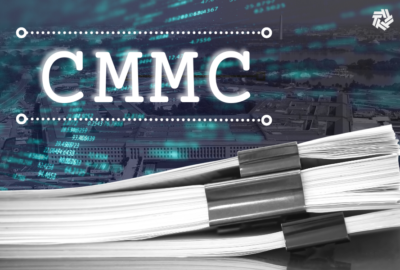Sponsored by EY
CISA instilling a customer-centric approach down to the program level
Jonathan Kraden, the section chief for customer experience in the cybersecurity division of the Cybersecurity and Infrastructure Security Agency at DHS, said by...
For Jonathan Kraden, the Homeland Security Department’s push to hire as many as 100 customer experience experts and even more technologists is both welcomed and not overly surprising.
Kraden, the section chief for customer experience in the cybersecurity division of the Cybersecurity and Infrastructure Security Agency at DHS, has been slowly turning the CX battleship at the program level over the past three years.
“If we’re not making things easy for our customers, they will find workarounds. They always do. They’ll find those apps that can do the things that they want to do, whether or not they’ve been blessed by our security apparatuses,” Kraden said on the discussion Government Modernization Unleashed: Digital literacy. “Customer experience and cyber don’t need to be at loggerheads. They don’t need to be fighting each other. I really do believe they’re complimentary. The more we can meet the needs of our customers, the more likely it is that they’re going to do what we’re asking them to do, the more likely it is that they’re going to follow our guidance. But it’s incumbent upon us to make sure that that guidance makes sense to them, that it takes into account their own expectations of CISA, that it’s written in plain language.”
CISA must not confuse agencies or fail to understand how its guidance impacts agency missions, Kraden said, adding that it’s a matter of winning agencies’ “hearts and minds” to get people to change the way they do things.
Demonstrating what CX can do
Kraden, who came to CISA in 2020 from the General Services Administration, has a team of four people that works closely with program staff and the agency’s shared services offices. The team’s goal is to instill a customer-centric approach throughout its work.
“I’m on the ground level working with people to just demonstrate to them, here’s what CX can do for you, and to try to get them to start adopting and folding in their customers’ expectations … into everything that they do,” he said. “We are seen as cyber experts and looked to as trusted guides in so many areas here at CISA. There are a lot of really, really smart people that are busting their behinds to do that work. Where CX comes in is that if we’re doing that job without paying attention to our customers, our users and their experiences with our services and products and their challenges and pain points, and if we aren’t learning from our customers, the people who work with and are implementing our tools and services each day, then how do we know that we’re doing the right thing?”
If CISA gets that simple question wrong, the consequences can severely affect agencies’ and the nation’s cybersecurity, Kraden said.
His office has two main focus areas currently: The first is to help build out a data infrastructure to better serve its customers. The second is to enable CX through the creation of best practices and guides.
“Our insights work is about getting the processes and the data in place to be able to anticipate and respond to customers’ needs. CISA is a data-heavy organization, but we haven’t historically collected and organized or referenced customer data in a systematic and consistent way,” Kraden said. “We’re working on several projects, things like a voice of the customer program, some qualitative data analysis work that that we’re hoping can improve the qualitative data that’s collected by our programs. Then, my team … can look across all the services and help inform leadership with insights that are centralized, seeing trends that individual programs can’t.”
Creating allies, champions for CX
The best practices and advisory support focus is mostly about cultural change.
Kraden said the CISA CX team has collaborated with service providers and other crosscutting programs to help with CX challenges.
“The role of my team is to create the templates, tools and best practices. We do provide some advisory support directly to a lot of people we’re looking for at the individual level,” he said. “There’s no shortage of coffees and meetings I have with people trying to explain to them: What is this thing called customer experience? How can it benefit the work that they’re doing? We are trying to create those champions, those allies, that will start to take this work and just build it into the normal things that they’re doing day to day.”
Over the last 18 months or so, Kraden said he’s seen momentum building toward understanding why CX matters and applying the discipline’s principles.
He said although there are times when he needs to explain the basics of CX and how using its concepts adds value, a better approach is to demonstrate why it matters.
“We started showing people what it means. We work with people to demonstrate if there’s a valid value that you will get from considering the experiences that people are having with your services, to engage with people and start to fold in their expectations, how it’s working and what’s working well as well as what’s not working as well,” Kraden said. “A key point is that we’re very, very focused on making sure that we’re always closing the feedback loop. That’s something that definitely resonates with a lot of the people within CISA. If somebody is giving us their most important resource, their time, we better make sure that we’re using that data that they’re giving us and we’re letting them know what we’re doing with it. Sometimes we need to remind people of that, but we’re definitely seeing some progress there.”
Listen to the full show:
Copyright © 2024 Federal News Network. All rights reserved. This website is not intended for users located within the European Economic Area.






